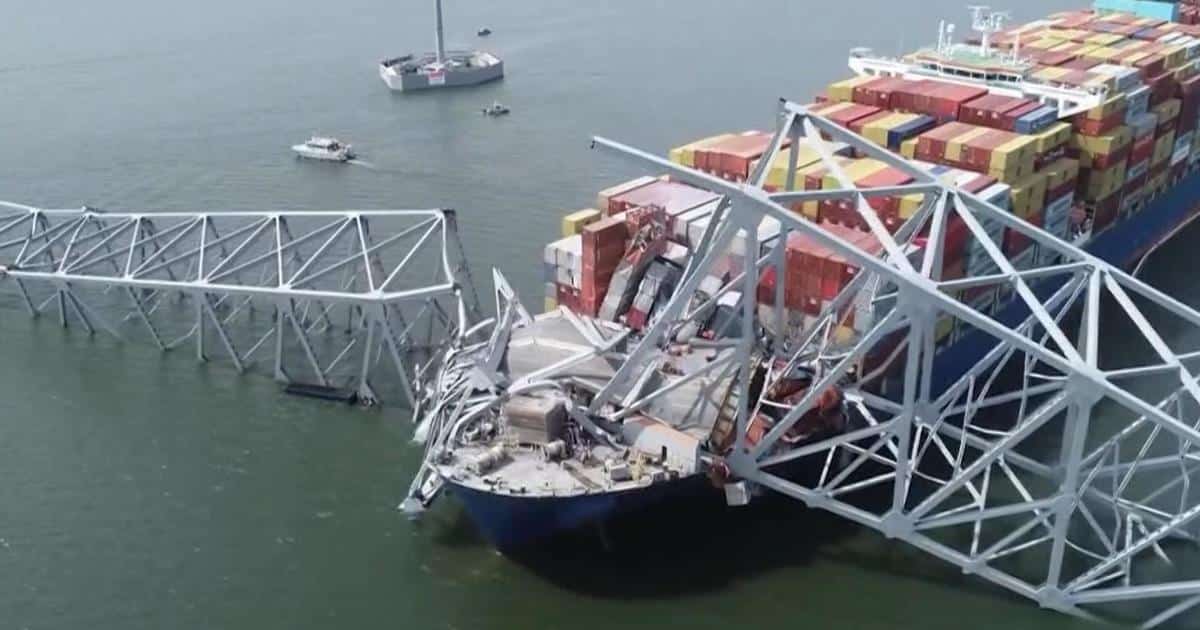Reconstruction of Francis Scott Key Bridge Begins Soon

The Maryland Transportation Authority (MDTA) is set to commence the reconstruction of the Francis Scott Key Bridge, with initial activities starting later this week. Originally scheduled for Tuesday, the pre-construction phase was delayed due to snowfall in the area. This significant project follows the tragic collapse of the bridge in March 2024, which resulted in the loss of six workers’ lives. As the MDTA prepares to move forward, they are committed to ensuring that the surrounding communities are involved and informed throughout the process.
Pre-Construction Activities and Community Involvement
The MDTA has outlined a comprehensive plan for the pre-construction activities that will take place in the coming weeks. Once the snow melts, the agency’s progressive design-build team will conduct property inspections for approximately 1,100 homes and businesses located near the Key Bridge. These inspections are voluntary and will be provided at no cost to homeowners. The MDTA anticipates completing these inspections by the end of February 2025, weather permitting.
Initial activities will include surveying, riverbed scanning, and soil sample collection. These steps are crucial for assessing the area before the actual reconstruction begins. The MDTA has proactively reached out to residents within a one-mile radius of the project area, mailing letters to inform them about the upcoming inspections. Residents can schedule these inspections at their convenience, ensuring minimal disruption to their daily lives.
Maryland Governor Wes Moore emphasized the importance of supporting those affected by the bridge collapse. He stated, “We will make sure that everyone who was directly impacted by the Key Bridge crisis, including the port workers and their family members, will be supported.” This commitment reflects the state’s dedication to rebuilding the bridge and restoring normalcy to the community.
Impact of the Key Bridge Collapse on the Port of Baltimore
The collapse of the Francis Scott Key Bridge had a profound impact on the Port of Baltimore. The main shipping channel was closed, halting the flow of cargo ships that transport essential goods. This disruption significantly affected the supply chain, as the port plays a vital role in the movement of various products, including cars, sugar, and coal. In 2023 alone, over 50 million tons of goods passed through the port.
In response to the challenges faced by local businesses, organizations such as the Greater Baltimore Committee and the Baltimore Community Foundation have launched initiatives to support those negatively impacted by the bridge collapse. These efforts aim to provide financial assistance and resources to help businesses recover from the disruption.
As the MDTA prepares for the reconstruction, the focus remains on restoring the Port of Baltimore’s operations and ensuring that the community can rebound from this setback. The collaboration between state agencies and local organizations highlights the commitment to rebuilding not just the bridge, but also the economic stability of the region.
Legal and Financial Developments Following the Collapse
In the aftermath of the Key Bridge collapse, legal actions have unfolded against the owners of the cargo ship Dali, which collided with the bridge. In October, the shipowners agreed to pay $101,980,000 to the federal government as part of a settlement with the Department of Justice. The DOJ claimed that the Dali was “unseaworthy” and that the shipowners were aware of electrical issues prior to the collision.
Additionally, the shipowners face multiple lawsuits from various parties, including Baltimore City, Baltimore County, and the state of Maryland. They have also filed a motion to limit their liability to $43.7 million, citing maritime law that dates back to the Titanic. This legal battle underscores the complexities surrounding the incident and the ongoing efforts to seek justice for the victims and their families.
On the financial front, President Biden formally requested Congress to include complete funding for the bridge reconstruction in the disaster relief fund. This request was approved in December, following an initial allocation of $60 million aimed at clearing debris from the waterway. The MDTA has awarded a $73 million contract to Kiewit Infrastructure Company for the design and construction of the new bridge, marking a significant step forward in the recovery process.
As the reconstruction of the Francis Scott Key Bridge begins, the community remains hopeful for a swift and successful rebuilding effort that honors the memory of those lost and restores vital infrastructure.
